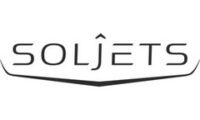Komplexná starostlivosť pre
vaše digitálne riešenia
Chcete optimalizovať procesy vývoja softvéru a dosiahnuť lepšie výsledky?
Cítite sa zaseknutí pri vytváraní digitálneho riešenia?
Sme ocenení a certifikovaní
Spoločnosť zaoberajúca sa vývojom softvéru
Spoločnosti Altamira dôverujú












SLUŽBY VÝVOJA SOFTVÉRU VRÁTANE ZISŤOVANIA A AUDITU PROCESOV
Zavedené podniky
Máte problémy so staršími softvérovými nástrojmi, narážate na limity svojej súčasnej spoločnosti vyvíjajúcej softvér alebo uvažujete o vývoji svojho spin-offu?
Možno sa budete snažiť dosiahnuť nasledovné:
Predvídateľné výdavky na vývoj softvéru
Záväzok týkajúci sa rozpočtu a časového harmonogramu
Prevencia uzamknutia dodávateľa
Škálovateľný a flexibilný proces bez úzkych miest
Zisťovanie a technologický audit
Najprv počúvame. Potom analyzujeme váš softvérový ekosystém, požiadavky a podnikateľské prostredie, čo nám pomôže vytvoriť riešenie na mieru a zároveň dodržať termíny a rozpočty.
Znalosti a rozsah pôsobnosti
Či už máte existujúce riešenie, alebo chcete vyvinúť nové, chceme vedieť všetko, aby sme minimalizovali neistoty. To nám umožňuje znížiť riziko vývoja z hľadiska nákladov a časového harmonogramu.
Návrh a realizácia riešenia
Aby sme skrátili čas potrebný na uvedenie na trh a znížili vaše náklady, uprednostňujeme integráciu existujúcich softvérových riešení pred začínaním od nuly. Aktívne využívame najmodernejšie metodiky vrátane AI a No-Code / Low-Code.
V spoločnosti Altamira poskytujeme riešenia, ktoré majú hmatateľný vplyv na rast a produktivitu našich klientov.
Vďaka znalostiam v oblasti vývoja produktov a technológií sa snažíme poskytovať nákladovo efektívne riešenia bez toho, aby sme znižovali kvalitu. Našou snahou je dodať to najlepšie zakaždým.
Odlišujeme sa tým, že kombinujeme technické znalosti s obchodným duchom a vytvárame dlhodobé partnerstvá s našimi klientmi.
SLUŽBY VÝVOJA SOFTVÉRU VRÁTANE ZISŤOVANIA A AUDITU PROCESOV
Startupy
Nápad a obmedzený rozpočet nemusia byť vždy prekážkou.
Vieme, ako znížiť mieru neistoty vo vašom projekte a dostať ho na trh 3-5x rýchlejšie ako zvyčajne so stabilnou IT vývojárskou spoločnosťou.
Riešenie prispôsobené vášmu rozpočtu a časovému plánu
Prístup bez kódu/nízkej úrovne kódu na urýchlenie uvedenia na trh
Škálovateľné riešenie bez blokovania dodávateľa
Objavte
Vaše nápady alebo obchodný plán premeníme na technické riešenie a pomôžeme vám odhaliť všetky netechnické závislosti, ktoré by mohli mať potenciálny vplyv na konečné riešenie.
Formulovať rozsah
Náš tím pre vývoj softvéru vám pomôže definovať rozsah vášho produktu a zabezpečí, aby bol v súlade s vašimi želanými termínmi a rozpočtovými očakávaniami.
Návrh a realizácia riešenia
Technické riešenie, ktoré vyhovuje vášmu rozpočtu a časovému plánu. Na zvýšenie efektivity využívame rôzne prístupy vrátane vývoja bez kódu alebo s nízkym počtom kódov.
Usilujte sa o dokonalosť so spoločnosťou Altamira
Spoločnosť Altamira bola mnohokrát ocenená za svoju výkonnosť a úspechy. Pridajte sa k našej komunite úspešných zákazníkov, ktorým sme pomohli vybudovať a rozvíjať ich podnikanie.



Optimalizujte proces vývoja softvéru pomocou nášho rámca
Projekty integrácie AI/ML
Či už potrebujete analyzovať veľké súbory údajov, optimalizovať pracovné postupy, vyvinúť virtuálnych asistentov alebo vytvoriť projekt počítačového videnia, máme potrebnú úroveň odborných znalostí, aby sme vám poskytli špičkové riešenia AI, ktoré zmenia vaše podnikanie.
Integrácia a automatizácia softvéru
Pomáhame vám pri navigácii v celom ekosystéme platforiem vašej organizácie, umožňujeme bezproblémovú spoluprácu efektívnym a automatizovaným spôsobom, čo v konečnom dôsledku zvyšuje celkovú efektivitu.
Systémy CRM a ERP a business intelligence
Predtým, ako sa vrhneme priamo do vývoja, chceme sa uistiť, že projekt je pripravený na úspech. Aby sme to dosiahli, najprv sa snažíme pochopiť vaše podnikanie a softvérový ekosystém, ktorý v súčasnosti využívate.
Tešíme sa na vašu správu!
- Naši odborníci sa vám ozvú do 24 hodín a poskytnú vám bezplatnú konzultáciu.
- Všetky poskytnuté informácie sú dôverné a podliehajú NDA.

